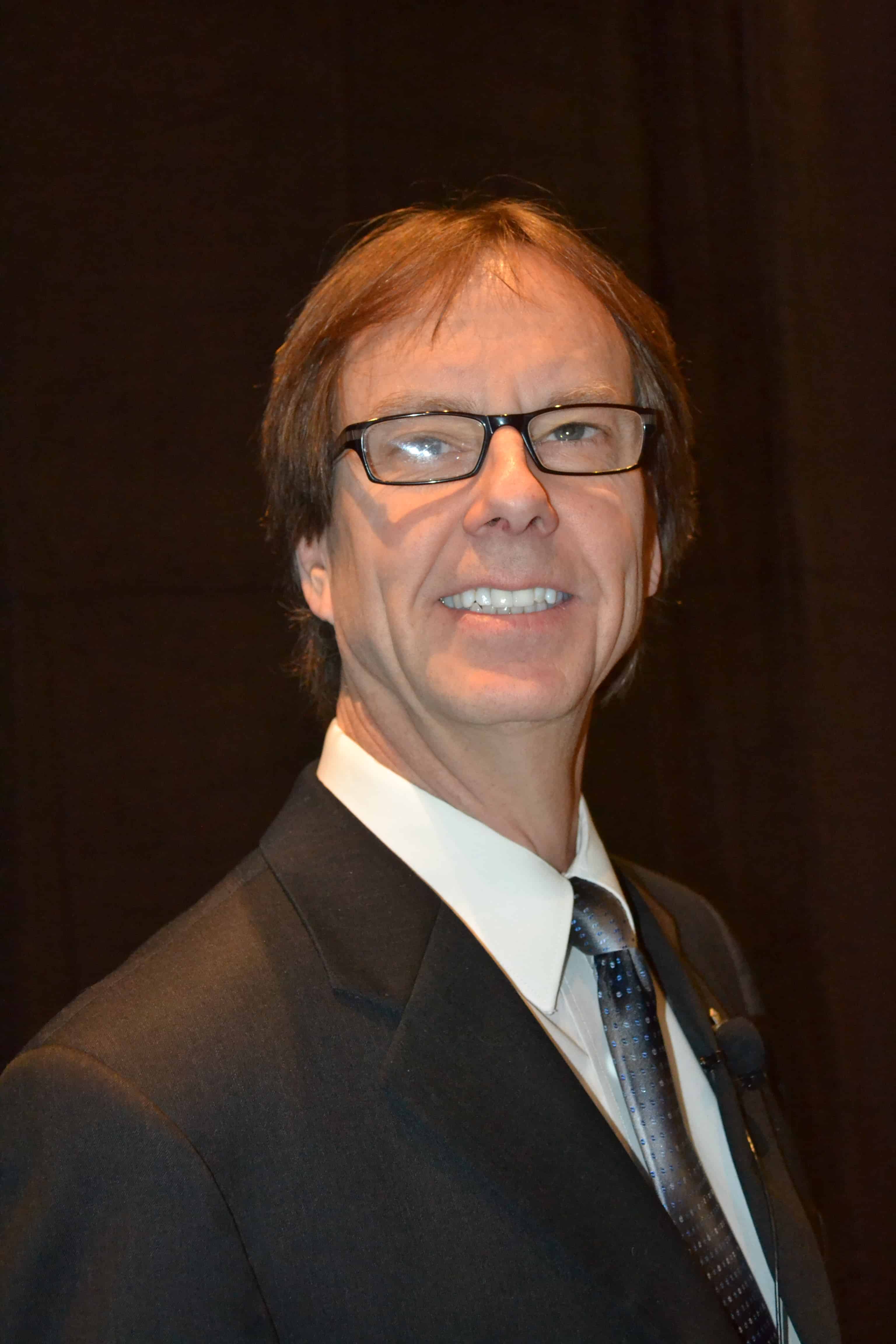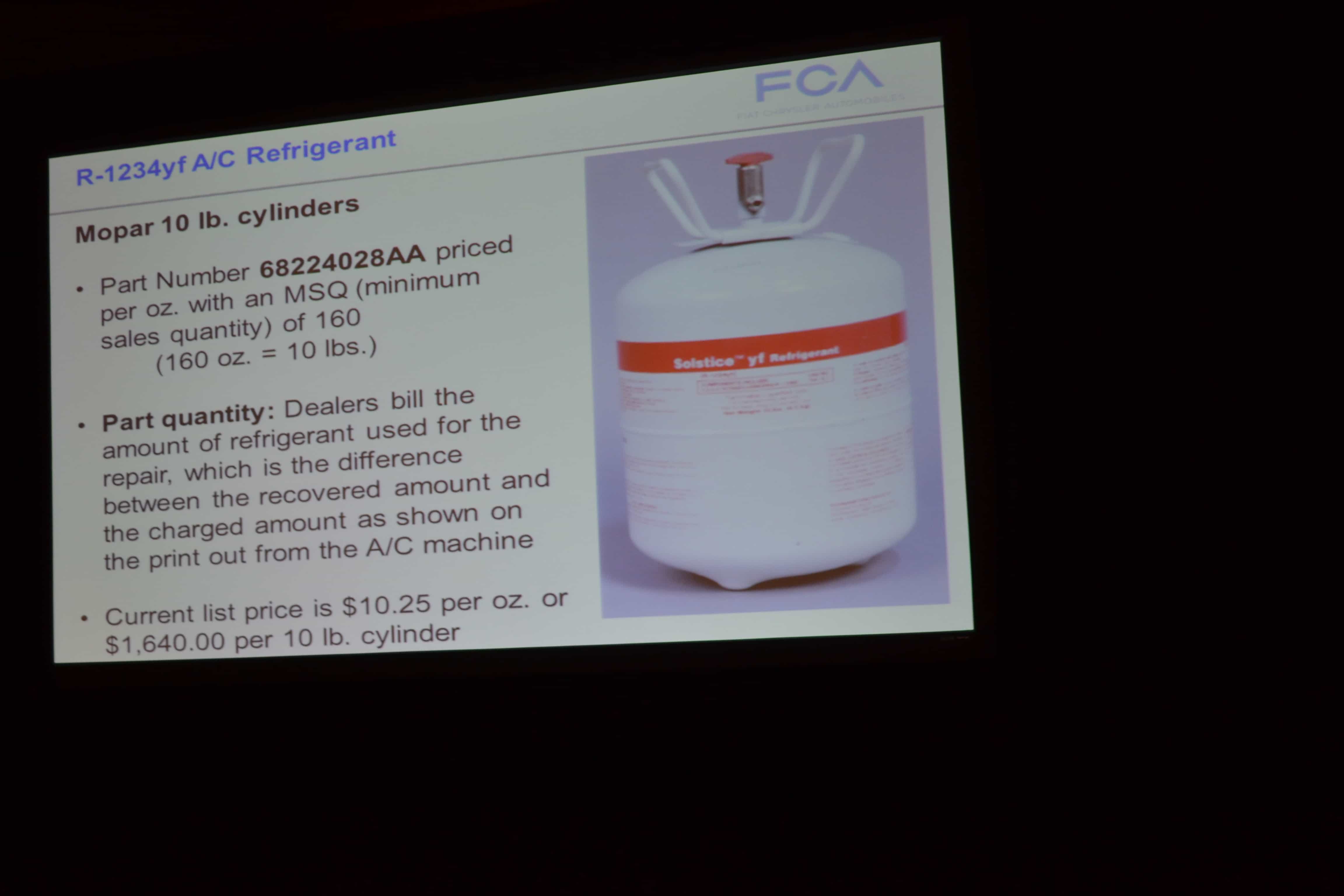R-1234yf and other trends
By Elvis L. Hoffpauir, MACS President and Chief Operating Officer
There’s no one better to talk to members of the service industry about R-1234yf than the folks at Fiat Chrysler Automobiles (FCA). The introduction of the “new” refrigerant began three years ago at the company, which now has several million yf vehicles on the road, and will have adopted that refrigerant for almost everything in its fleet with Model Year 2016.
Addressing a roomful of mobile A/C industry specialists at the recent annual MACS Training Event, FCA Technical Advisor Alan McAvoy noted “it has been a phenomenal launch. We haven’t really had any service issues. Most of the dealer service has been collision-related.”
Citing a long-existing performance test as an example, McAvoy said, “With yf, I really don’t feel there is anything to be afraid of. Follow your service procedures. It’s expensive refrigerant and obviously you don’t want to waste it, but what you have been doing for years on 134a is the same thing you’re going to be doing with yf – it’s not really any different.”
McAvoy did note that with FCA, “yf was not always a model year changeover. In some vehicles it was a running change” so the service tech needs to open the hood and check the label or otherwise check to identify which refrigerant is in a particular system.
He also cautioned technicians to make sure they were using the correct refrigerant oil. “Some look at the label, and if it says ‘PAG,’ they figure that any PAG must be good to go, but that’s not the case.” FCA currently uses three different oils, based on the type of compressor. He also noted that, “we have seen some cases with the yf system where recovery machines tend to pull a little more oil – maybe an ounce or so – more than the technician may have been used to with the 134a system.”
Manufacturer recalls: “The whole industry has changed quite a bit; we’re in a different business than we were 10 or 15 years ago,” McAvoy said. “What was a service bulletin in the past will now be a recall. Part of customer service is checking that the customer is not driving around with an open recall.”
The connected car and security: “Because of the amount of electronics on today’s vehicles, and the connections to the internet, the potential of hacking is there. How do we prevent our cars, our scan tools, from being hacked? SAE International, vehicle manufacturers and others are involved in efforts to provide for the security of these systems.
Flashing: This technology used to reprogram automotive computer modules is a service that can be a boon to both the consumer and the service provider, but McAvoy cautioned, “Ask the consumer and get their permission first. Don’t just have a ‘flash party’ and not inform the consumer what the changes will be. You can’t go backwards.”
Fuel economy: Some things we’re adapting may be different or new to the consumer but are designed to provide fuel economy gains, 9 speed transmission and stop-start technology for example. Often customers may assume that anything that is new or different from their previous vehicle can be interpreted as a problem and state that “My last car didn’t do that.” It’s very important to understand normal operation and compare to a like vehicle before assuming that the customer concern is actually a problem before performing any repairs. The vehicle may be operating as designed and the customer is just not familiar with these new features.
If you’re a service professional and not a MACS member yet, you should be!
Become a member and receive a monthly technical newsletter with information like what you’ve just read in this blog post visit http://bit.ly/10zvMYg for more information.
You can E-mail us at macsworldwide@macsw.org .
To locate a Mobile Air Conditioning Society member repair shop in your area.
Click here to find out more about your car’s mobile A/C and engine cooling system.
Mobile A/C professionals should plan to attend MACS 2017 Training Event and Trade Show, February 15-18 at the Anaheim Marriott in Anaheim, CA.
Click here to see MACS current public training schedule.
The MACS website is located at www.macsw.org



Leave a Reply